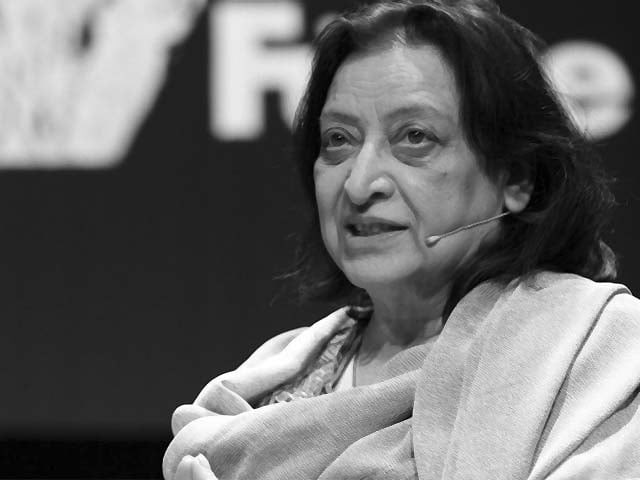Today marks the 74th birthday of Fahmida Riaz, one of Urdu’s greatest feminist resistance poets, who passed away rather unexpectedly back in 2018. During her eventful life, she always stood up for progressive causes, for the rights of the oppressed people, nationalities and women, and had to pay the price in terms of long spells of exile in the UK and India, as well as long periods of unemployment. Yet she kept publicly espousing the cause of socialism right till her last breath.
Similarly, one of the great socialists and champions of the oppressed of the 21st century, Commandante Hugo Chavez, former leader of Venezuela, also turns 66 today. He was a contemporary of Riaz and one of the most inspiring revolutionaries of the 21st century – our modern Bolivar. He passed away too young, at the age of 58 in 2013. What Riaz did with the pen, Chavez achieved in practice with his politics. He ushered in nothing less than a democratic revolution in his native Venezuela, first by mounting an unsuccessful coup against the country’s notoriously corrupt two-party system in 1992; a system which had systematically excluded the poor despite the wealth generated by oil in the region. Chavez was later elected president in 1998, and re-elected in 2000 and 2006. His successful example was hailed throughout the world and had a profound influence in Latin America.
Apart from using Venezuelan oil to benefit the country’s poor, Chavez also stood for and worked for the unity of Latin America. Both these agendas put him and his comrades in opposition to American imperialism. Like Riaz, Chavez also paid the price for his defiance; in April 2002 he was briefly overthrown in a US-backed coup d’etat. However, within just a couple of days, he was restored to power by a majority of poor Venezuelans filling the streets and reinstating the president they had elected with their votes. Chavez memorably said in 2006:
“Capitalism is the way of the devil and exploitation. If you really want to look at things through the eyes of Jesus Christ – who I think was the first socialist – only socialism can really create a genuine society.”
Thus, Riaz’s poem World Bank is a fitting way to celebrate the birthdays of these two champions of the oppressed. This poem is part of Riaz’s collection titled “Aadmi Ki Zindagi” (The Life of Man), in which political chaos, the desire for internal and external union, and the literary quest of human life can be witnessed. The poem is a satire on the practices and policies of financial institutions like the World Bank and the International Monetary Fund (IMF), which have been shown to exacerbate misery and poverty in several developing countries like Pakistan. The first part of the poem is the standard opinion of World Bank ‘experts’ about the people for which they devise such deleterious policies, bordering on thinly-veiled contempt. However, Riaz also launches into a critique of the World Bank if one reads between the lines, reflecting the worldview of the poor people who mock these experts for supposedly knowing all. So much so that even the World Bank expert, in a surprising twist, is forced to admit in the last stanza that:
“Ye bhi soch sakte hen
Kon maan sakta hai!
In ke dil men kya kuchh hai
Kon jan sakta hai”
The beauty of Riaz’s satire is that she does not turn prescriptive, as many of her Progressive contemporaries often do in their own work, which can end up marring the beauty of the work and distract attention away from the bite of the satire. But there is no doubt that Riaz would have agreed with what her comrade Chavez did so successfully in Venezuela for over a decade as its leader, turning the country away from the World Bank and towards the love and respect of its benighted people.
~
World Bank by Fahmida Riaz
‘Unlimited power they disposed
Within a system they proposed
For the countless indisposed
How much the unlimited power
Expended their labour
On compiling this dossier!
They have bad habits, these people who are weak
They possess such a worthless streak
In misery and deprivation
They are passionate for copulation
Their pockets are in distress
But they carry on listening to songs without duress
To the unlimited power
They say, heads nodding in agreement
“Wow, what a sagacious judgement!
“How should we live on this Earth
Just these problems for whatever they are worth
You continue to search
What could we desire
A hundred times better
You know sire!”
These shameless thankless ones
Living in filth and contaminations
They hide their faces and jeer
Upon the unlimited power.
Could they also ponder
Who indeed can wonder!
Whatever lies in their heart
Who can know till death do us part.’



COMMENTS
Comments are moderated and generally will be posted if they are on-topic and not abusive.
For more information, please see our Comments FAQ